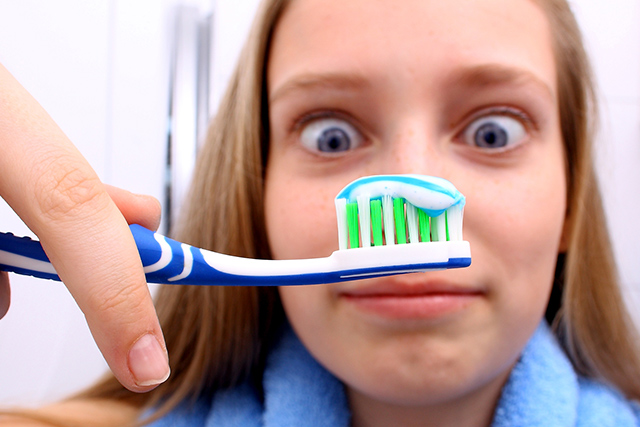Caring for your child's teeth at home.
Teaching your child the proper way to care for their teeth is critical. That's why a good portion of your child's regular visit is spent teaching them proper brushing and flossing techniques, and about the different tools they can use at home to help take care of their smile.
At each visit, one of our Dentists will conduct an oral health screening and provide one-on-one oral health counseling that includes feedback on brushing, nutrition, treatment needs, and other techniques to help keep your child’s smile in its prime. But there’s so much more that they, and you, can and should do at home.

Plaque and its Effects
Plaque can be most easily described as making the teeth "feel fuzzy" to the tongue and is most noticeable when teeth are not brushed.
This soft, sticky film is loaded with bacteria that constantly forms on teeth. With improper hygiene, plaque that is not removed can harden and form tartar (also called calculus) which can make it even more difficult to keep your teeth clean. Only a professional cleaning can remove tartar from your teeth. Over time plaque and tartar buildup can cause tooth decay and lead to gum disease.
Flossing & other ways you can take care of your teeth and control plaque.
- A disclosing agent can reveal the amount of plaque that’s in your mouth after you brush. It can help point out areas in your mouth that you may not be reaching when you clean.
- You can also get decay in places where your toothbrush can’t reach—like in between teeth. Be sure to clean between your teeth every day using floss, picks or other cleaners. Your dentist or hygienist can help determine which method works best for your mouth.
- Anti-gingivitis mouthrinse reduces bacteria that can cause gingivitis, an early form of gum disease.
- For some people, a powered toothbrush may be easier or more comfortable to use than a regular toothbrush.

 6820 Parkdale Pl., #117 |
6820 Parkdale Pl., #117 |